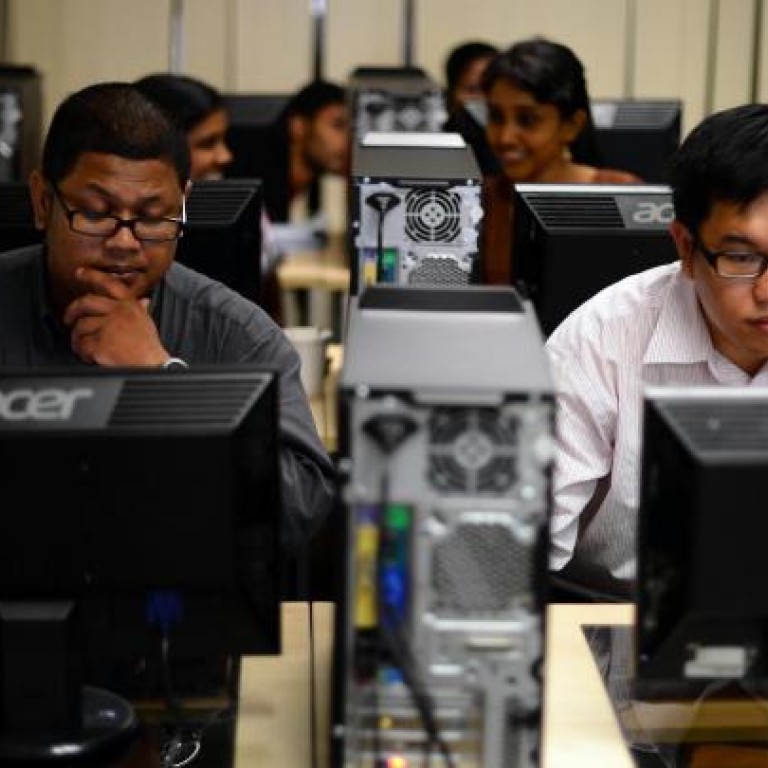
Online degrees blossom in Asia, attracting students around the world
Degrees taken over the internet are expanding fast, attracting students from around the world
Thousands of kilometres from Kuala Lumpur in Cameroon, doctoral student Michael Nkwenti Ndongfack attends his Open University Malaysia classes online and hopes to defend his final thesis by Skype.
A government worker, Ndongfack could not find the design and technology course he wanted in his own country, so is paying a foreign institution about US$10,000 for the degree instead.
Online university education is expanding quickly in Asia, where growth in technology and internet use is matched by a deep reverence for education.
"I chose e-learning because it is so flexible," Ndongfack, 42, said via Skype from his home in the Cameroonian capital, Yaounde.
Web-based courses dramatically boost opportunities for students and are often cheaper than those offered by traditional bricks-and-mortar institutions.
But online learning has also caught the eye of some of the world's most prestigious universities, with Harvard and the Massachusetts Institute of Technology recently teaming up to offer free courses over the internet.
"With the improvement in technology, the number of institutions offering online education has increased, both in terms of numbers and the kind of classes offered," said Lee Hock Guan, senior fellow at Singapore's Institute of Southeast Asian Studies.
The Malaysian government said about 85,000 people took online courses in the country last year, both at web-based institutions and traditional universities offering internet teaching.
In hi-tech South Korea more than 112,000 students at 19 institutions are taking web-based classes, all of which have begun since 2002.
China embraced the concept of online learning in the late 1990s to expand access to education, particularly in its vast rural regions, and there are now scores of providers, with 1.64 million people enrolled in 2010.
Online courses are changing the way students learn, educators say, placing less emphasis on the rote learning that has long characterised education in parts of Asia, and harnessing modern consumer technologies.
At Kuala Lumpur-based Asia e University, students download course materials from an online forum and virtual library. They are in contact with teachers and fellow students mostly through e-mail, online chats, phone and text messages.
Assignments typically include illustrating what they have learned with videos and other presentations made with smartphones, iPads or other devices and uploading them to YouTube.
But even those in favour of online learning admit face-to-face interaction - which can also help keep students motivated and personally engaged - is lost.
Ndongfack, whose web-only institution opened in 2000, said online studies were not easy, leaving him feeling isolated. "There is no one there to give you instant support," he said.
The growth of online degrees is also constrained by poor internet accessibility in parts of Asia.
Other criticisms include inadequate regulation, allegations of poor-quality teaching, student cheating, and the fact that online degrees are still not as widely recognised as traditional ones in the marketplace, say experts.
